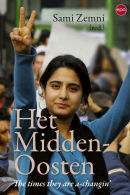(14-05-2013) USAID: Missionaries of US Imperialism
(14-05-2013) Iraq's invisible refugee crisis
(03-06-2013) War Crimes as Policy
(16-05-2013) Iraq en el Congreso de los Diputados
(11-05-2013) INSIDE IRAQ TODAY
(15-04-2013) Iraq: The Invasion of Our Nation Goes Unpunished
(16-04-2013) Iraq overwhelmed by a war never ended
(04-04-2013) As Iraq Becomes Iran-Like
(04-06-2013) Oil Wars: a Moral Cancer
(16-05-2013) Baghdad market attacks, shootings in north kill 17
(15-05-2013) How Baghdad Fuels Iraq's Sectarian Fire
(25-04-2013) Iraq: Executions Surge but No Action on Reform
(24-04-2013) Shawki Omar, U.S. citizen held in Iraq prison, abused and discriminated against, wife ...
(04-04-2013) GICJ Strongly Condemns Recent Executions in Iraq
(03-05-2013) The State of Torture in America
(25-04-2013) Iraq: Executions Surge but No Action on Reform
(24-04-2013) Shawki Omar, U.S. citizen held in Iraq prison, abused and discriminated against, wife ...
(04-04-2013) GICJ Strongly Condemns Recent Executions in Iraq
(03-05-2013) The State of Torture in America
(16-02-2013) Appel du peuple Irakien - Le 14.02.2013
(04-06-2013) Oil Wars: a Moral Cancer
(15-04-2013) Iraq: The Invasion of Our Nation Goes Unpunished
(03-04-2013) Hidden War Crimes in Iraq
The BRussells Tribunal is independent and wants to remain independent.
The BRussells Tribunal is an activist think tank and peace organisation with a special focus on Iraq. Read more...


 The times they are a-changin' is het eerste grondige Nederlandstalig overzicht dat voorbij oppervlakkigheden en algemeenheden wandelt, en ook nog eens de hele regio bestrijkt, van Egypte en Tunesië tot Marokko, Libië, Syrië, Libanon, Palestina, Jemen, Jordanië, Irak, Bahrein en Israël. Daar bestaat een woord voor: een standaardwerk.
The times they are a-changin' is het eerste grondige Nederlandstalig overzicht dat voorbij oppervlakkigheden en algemeenheden wandelt, en ook nog eens de hele regio bestrijkt, van Egypte en Tunesië tot Marokko, Libië, Syrië, Libanon, Palestina, Jemen, Jordanië, Irak, Bahrein en Israël. Daar bestaat een woord voor: een standaardwerk.